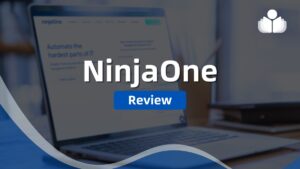Debt management is a strategy to eliminate unsecured debt without taking out a loan or putting assets like your home or car at risk. These programs are effective for managing credit card debt, but they can also include other types of unsecured debt.
The primary advantage of debt management programs is their ability to reduce the interest rates on high-interest loans, such as credit cards, and lower your monthly payments.
Most debt management programs are operated by credit counseling agencies, which can often reduce interest rates from 20%-30% to around 8% or even lower. This makes the monthly payments more affordable and can help eliminate debt within 3-5 years if you stay committed to the program.
So, how do you find a reputable debt management program? In this article, we’ve compiled a list of the best debt management companies, and one of them might be the perfect fit for your needs.
>> Recommended for Unsecured Debts Above $20,000 >>
7 Best Debt Management Companies
- Freedom Debt Relief – Best Overall for Debt Management
- Accredited Debt Relief – Best for Quick Resolution
- National Debt Relief – Best for Fee Transparency
- Pacific Debt Relief – Best for an Established Track Record
- Money Management International – Best Nonprofit for Debt Management Help
- CuraDebt – Best for Tax Debt management
- New Era Debt Solutions – Best for After-Hours Customer Service
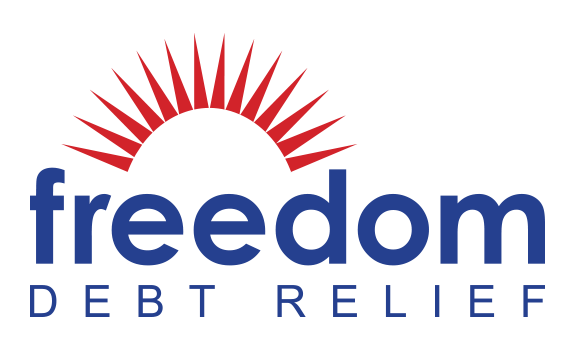
Freedom Debt Relief stands out as a leading choice when exploring top options for debt management due to its extensive experience and comprehensive approach.
With over 20 years in the industry, Freedom Debt Relief has resolved billions of dollars in debt, providing personalized settlement plans tailored to each client’s unique financial situation. The company is distinguished by its commitment to transparency, robust customer support, and holistic financial solutions.
With no upfront fees and flexible payment options, Freedom Debt Relief is a reliable and effective choice for those seeking to regain control of their finances.
The company specializes in helping with unsecured debts, such as credit cards, personal loans, and medical bills, by negotiating with creditors to reduce the amount owed and assist in getting out of debt.
According to the company, clients with at least $7,500 in debt typically resolve it within two to five years. Freedom Debt Relief charges 15% to 25% of the enrolled debt, with no fees required until a settlement is agreed upon.
- No upfront fees
- Over $15 billion in debt settled
- Interactive client dashboard to track settlement progress
- Services aren’t available in every state
- Settlements may significantly harm credit scores
- The process can take up to 48 months to complete
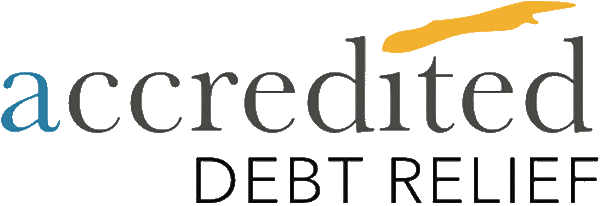
Accredited Debt Relief operates under the DBA of debt consolidator Beyond Finance. Established in 2011, the company claims to have served over 200,000 clients and resolved over $1 billion in client debt.
Accredited Debt Relief specializes in unsecured debt, including credit cards, medical bills, and payday loans. It offers debt settlement services and debt consolidation through its affiliates.
While no officially published minimum debt requirement exists, client reviews suggest that the company typically handles debts totaling over $10,000. The company provides free consultations and savings estimates without upfront fees or enrollment obligations.
Accredited Debt Relief states that clients who complete all monthly deposits can reduce their enrolled debt by approximately 45%, with fees averaging between 15% and 25% of the total debt. Some clients pay off their debts in as little as 12 months, though the typical timeline can extend to 48 months.
Accredited Debt Relief is accredited by the American Fair Credit Council (AFCC) and the Consumer Debt Relief Initiative (CDRI). The company holds an A+ rating from the Better Business Bureau and has a very low number of complaints relative to the volume of reviews.
On Trustpilot, Accredited Debt Relief is rated 4.9 out of 5 stars, with 98% of over 5,600 reviewers awarding four or five stars. Common complaints in negative reviews include dissatisfaction with the enrollment process and concerns about how fees are assessed.
- No upfront payments required
- More than $1 billion in debt resolved
- A+ rating from the Better Business Bureau
- Services aren’t available in every state
- You may still face lawsuits and collections from creditors
- Fees can be relatively high
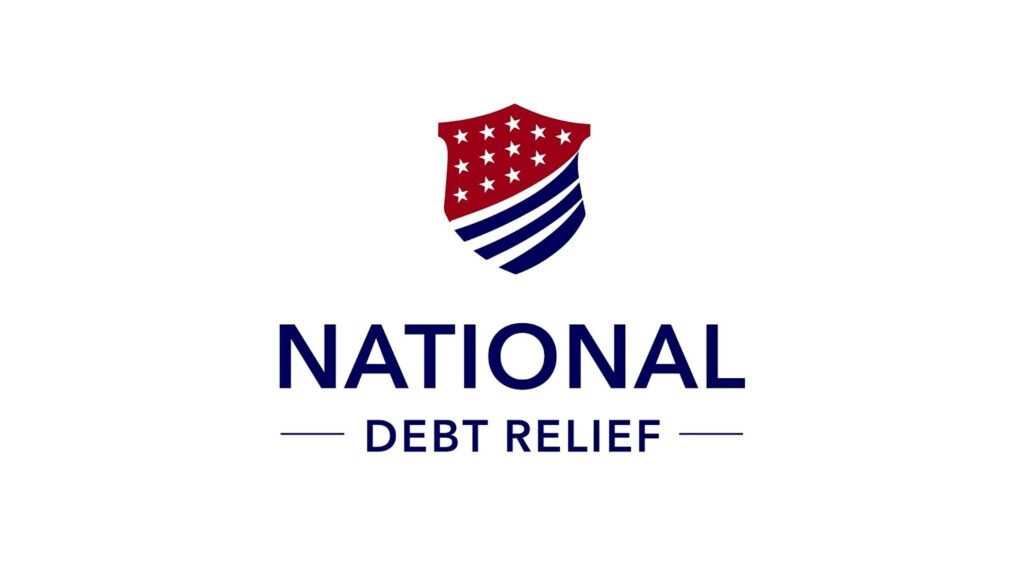
National Debt Relief is one of the largest debt relief companies, established in 2009. It specializes in debt settlement and has assisted over 550,000 clients in resolving unsecured debts.
Clients can save up to 46% of their debt (excluding fees) and achieve debt freedom within 24–48 months.
Additionally, National Debt Relief has an extensive network of partners for other debt relief services. You may qualify for and receive referrals to debt consolidation loans, credit counseling agencies, and bankruptcy services.
- As one of the largest debt relief companies, National Debt Relief has been operating since 2009 and has assisted over 550,000 clients
- Clients can save up to 46% of their total debt (excluding fees) through debt settlement
- The company offers more than just debt settlement; it has a network of partners for debt consolidation loans, credit counseling, and bankruptcy services
- You don’t have to pay any fees until a settlement is reached
- Depending on your situation, the program can be tailored to resolve debt within 24–48 months
- Engaging in debt settlement can significantly harm your credit score, as accounts may be marked as settled for less than owed
- The process can take up to 48 months, which might be longer than some clients are comfortable with
- National Debt Relief’s services aren’t offered in every state, limiting access for some potential clients
- While you can save a significant portion of your debt, the fees charged (15% to 25% of the enrolled debt) can add up
- The IRS may consider forgiven debt taxable income, leading to potential tax obligations
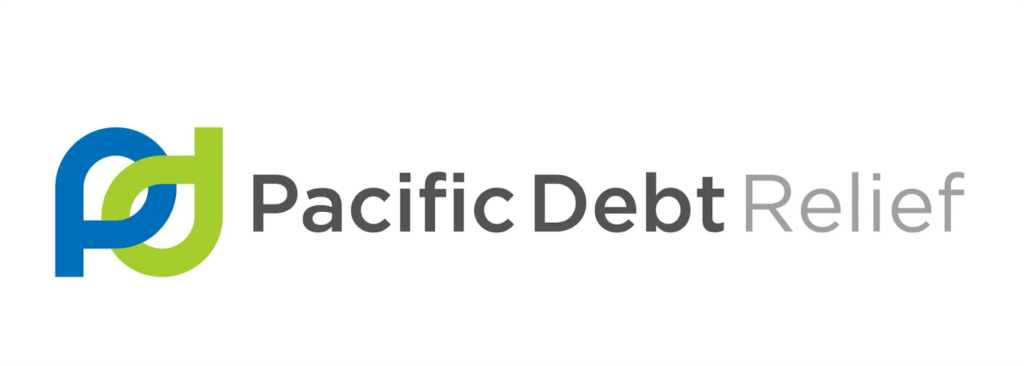
Pacific Debt Relief is a reputable choice for debt management, recognized for its personalized approach to reducing unsecured debt. With over 20 years of experience, the company provides customized debt settlement programs that often significantly reduce the amount owed by negotiating directly with creditors.
Their commitment to transparency and strong client support ensures a precise and manageable journey to becoming debt-free, typically within 24 to 48 months.
Accredited by the American Fair Credit Council, Pacific Debt Relief has built a solid reputation for helping clients achieve financial stability without charging upfront fees, making it a trustworthy option for effective debt relief.
The company also leverages new technology to enhance communication between clients and the Pacific Debt Relief team, streamlining case management and improving efficiency.
Their team undergoes regular training on best practices and negotiation strategies with creditors. With Pacific Debt Relief, you won’t pay any upfront fees. The fees, ranging from 15% to 25%, depend on your location and the debt you owe.
- No upfront fees required
- A+ rating from the BBB
- Regular updates from your account manager every few weeks
- Services aren’t available in all states
- Participation in the program may negatively affect your credit score
- Requires a minimum of $10,000 in unsecured debt to qualify
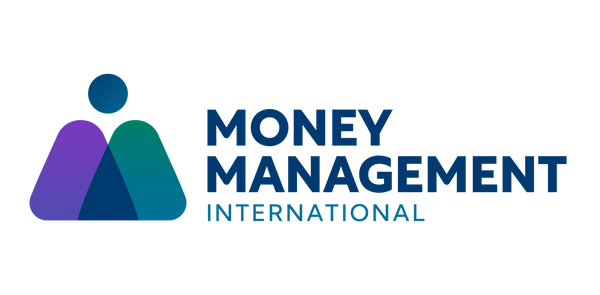
MMI has been in operation since 1958 and is the largest company in the industry. The wide range of options on their website’s homepage makes it easy to address your issue and find solutions.
They offer specialized services on home buying, understanding credit reports, and bankruptcy. They provide free webinars and online classes. Their service is available 24/7, and the website includes a Spanish-language option.
When you enroll in an MMI debt management plan, you’ll be responsible for setup and monthly fees. These fees vary depending on the debt you’re repaying and your location. According to MMI, clients typically pay an average of $25 per month and $33 for setup.
One of the standout features of MMI is the cap on fees. You’ll never pay more than $75 to set up your debt management plan, and monthly fees are capped at $59, regardless of your debt amount or location.
- Nonprofit organization
- Accessible 24/7
- More than $10 billion in debt repaid
- Clients experience an average credit score increase of 85 points within four years of starting
- Although phone support is available 24/7, physical locations are nonexistent in every state
- Your credit score may temporarily drop as your credit accounts are closed
- Not all creditors may choose to participate
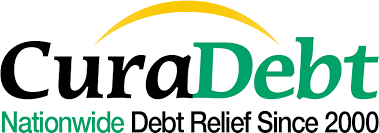
CuraDebt is a well-respected choice for debt management, offering various services, including debt settlement, tax relief, and debt negotiation. With over 20 years of experience,
CuraDebt has earned a reputation for helping clients significantly reduce their unsecured debt through customized settlement plans designed to resolve debt within 24 to 48 months. The company is recognized for its personalized approach, working closely with clients to develop solutions tailored to their unique financial situations.
CuraDebt’s primary offering is its debt settlement services, which, like other debt settlement companies, come with no upfront fees. You’ll stop making payments on your debts and instead make monthly contributions to a third-party account to build up a settlement fund.
While fees may be associated with this account, CuraDebt doesn’t specify the cost. If CuraDebt successfully resolves any of your debts, they’ll charge a settlement fee ranging from 15% to 25% of the original amount of those debts.
- Assists with various types of debt
- Provides live chat support
- Accredited by both the AFCC and IAPDA
- Website is confusing and outdated
- Available in only 26 states and Washington, D.C.
- Settlement fees are calculated based on the original debt amount, not the settled amount

New Era Debt Solutions is recognized for its dedication to helping clients achieve debt freedom without upfront fees. With over 20 years of experience, New Era takes a straightforward and ethical approach to debt settlement, focusing on reducing unsecured debt through direct negotiations with creditors.
What distinguishes New Era is its commitment to transparency and client satisfaction. It manages every aspect of the process in-house rather than outsourcing, ensuring consistent, high-quality service and often results in quicker debt resolution within 24 to 48 months.
The company’s debt specialists tailor strategies to each client’s financial situation. Additionally, New Era partners with Consumer First Legal Network, expanding its capabilities to provide legal insights when needed.
- Customized debt relief programs
- No upfront service fees
- A+ rating from the Better Business Bureau (BBB)
- Not available in all states
- Credit scores may decrease
- Pricing lacks transparency
Best Debt Management Companies – Buyer’s Guide
What Is Debt Settlement?
Debt settlement, also known as debt relief or resolution, is an agreement between a creditor and a borrower in which the creditor accepts less than the total amount owed as a final payment.
If you successfully settle a debt, you pay a lump sum less than the total balance, and the creditor forgives the remaining debt. Creditors are more likely to agree to a settlement when borrowers are several months behind on payments. Sometimes, creditors may accept a series of payments to settle the debt.
You can negotiate a debt settlement on your own or hire a debt settlement company. These companies usually charge 15% to 25% of the debt balance for their services, and you only pay if they negotiate a settlement that you agree to.
Professional help can be valuable if you need to be more experienced or comfortable with negotiating or have multiple accounts to resolve. Debt settlement applies only to unsecured debts, such as personal loans, credit card balances, medical bills, collection accounts, and sometimes private student loans.
It only works with secured debt because lenders can reclaim the collateral if you repay. It’s important to note that creditors aren’t obligated to settle with you.
During the debt settlement process, you can expect continued collection efforts, including phone calls, notices, and other forms of contact, and in some cases, creditors may even file lawsuits.
>> Certified Debt Consultants Available >>
How Does Debt Settlement Work?
Here’s what to expect when you enroll in a debt settlement program:
- Building a Lump Sum: You must save a lump sum to offer your creditors. If you can’t pull it from savings or borrow it, you’ll stop paying some of your debts and instead redirect that money into a debt settlement savings account. Typically, it takes four to six months to settle your first account and two to four years to complete the entire process if you have multiple debts.
- Contact from Creditors: Once you stop making payments, you can expect to hear from creditors and debt collectors, including phone calls, notices, and other forms of communication. They might even file a lawsuit, especially if you ignore their attempts to reach you. Your debt settlement company may offer guidance on how to handle these calls.
- Negotiating Settlements: When you’ve saved enough money, your debt relief company will contact your creditors to negotiate a settlement. The goal is to reach an agreement that satisfies both you and the creditor.
- Reviewing the Agreement: If a settlement is reached, your debt settlement professional will present the offer. You can choose to accept or decline it. By law, you only pay the debt settlement fees if you accept the offer and make the payment. You’ll then pay the creditor’s lump sum along with the fee to the debt settlement company.
- Account Closure: The creditor will likely close your account and report it to the credit bureaus as “settled for less than the amount owed.” Any remaining balance on the account will be forgiven.
>> Online Registration With 24/7 Customer Assistance >>
Who Qualifies for Debt Settlement?
Debt settlement might be a suitable option if you:
- Have a significant amount of unsecured debt that you can no longer manage
- Prefer not to file for bankruptcy or are ineligible for Chapter 7 bankruptcy
- Can demonstrate a hardship or provide a compelling reason for creditors to agree to a settlement
Creditors may accept less than the full amount you owe if the alternative is receiving nothing or facing expensive legal action. However, if your goal is to reduce your monthly payments, debt settlement may not be the right choice.
“Debt settlement is an option for consumers who can’t afford their current debt payments and either can’t or won’t file for bankruptcy,” says Gerri Detweiler, credit expert and co-author of Debt Collection Answers: How to Use Debt Collection Laws to Protect Your Rights.
What Are the Pros and Cons of Debt Settlement?
- You may be able to reduce the amount you owe
- Debt settlement is a private process, unlike bankruptcy, which is public and involves the court system
- You can accept or decline a settlement offer, whereas, in bankruptcy, a judge determines what you’ll pay or which property you’ll surrender
- Collection calls cease once your account is settled
- Some debts may not be eligible for settlement. Results aren’t guaranteed, and certain creditors may refuse to negotiate with debt settlement companies
- Missed payments can result in late fees, penalties, and other charges, potentially reducing the settlement’s value
- Forgiven debt might be subject to taxation
- The debt relief company will charge you a fee once an account is settled
How to Choose the Best Debt Settlement Company
When selecting a debt settlement company, consider these five important factors:
- Eligibility: Ensure the company can handle the type and amount of debt you have. Many companies focus on specific debt types, such as credit cards or medical bills, and most require a minimum debt amount for enrollment.
- Fees: Choose a debt settlement company with the lowest fee percentage. Also, consider any fees related to savings accounts and other associated costs.
- Accreditation: Confirm that the company is accredited by organizations like the American Fair Credit Council, the International Association of Professional Debt Arbitrators, or, ideally, both. These groups set standards designed to protect consumers.
- Transparency: A reliable debt settlement company will be clear about the potential risks, including the possibility of continued debt collection efforts, lawsuits, or negative impacts on your credit score. Look for this transparency in the company’s disclosures on their website.
- Customer Service: Review feedback and complaints on platforms like the Better Business Bureau and the Consumer Financial Protection Bureau’s Consumer Complaint Database to gauge the company’s customer service quality.
>> Best for People With Over $20,000 in Debt >>
What Are the Alternatives to Debt Settlement?
- Debt Management Plans (DMPs): A DMP consolidates your debts into a single monthly payment with a plan to pay them off within three to five years. A credit counseling agency creates and manages the plan, and your counselor may negotiate lower interest rates and waive certain fees. You make a monthly payment into the plan, which your counselor distributes to your creditors. This payment also includes a debt management fee.
- Debt Consolidation Loans: A debt consolidation loan combines multiple accounts into one loan with a single payment. Ideally, the new loan offers a lower interest rate, monthly payment, or both.
- Balance Transfer Credit Cards: A balance transfer allows you to move debt from one or more credit cards to a new card. For those with good credit, some cards offer a 0% APR on transferred balances for 12 to 21 months. Expect to pay a balance transfer fee from 3% to 5%.
- Bankruptcy: Filing for bankruptcy halts collection efforts and takes place in court, where a judge’s decision determines how your debts will be handled, which both you and your creditors must follow.
- Direct Negotiation: If you prefer not to work with a debt settlement company, you can negotiate with your creditors directly.
As credit expert John Ulzheimer, formerly of FICO and Equifax, notes, “There’s nothing a debt settlement company can do for you that you can’t do yourself. If you’re struggling to make payments, talk to your lender—they’d rather work with you than a third-party settlement company.”
>> Freedom Debt Relief: A+ Rating From the BBB >>
Best Debt Management Companies – FAQs
Bottom Line – Best Debt Management Companies
Selecting the right debt management company is a vital step toward taking control of your financial future. Companies like Freedom Debt Relief, Pacific Debt Relief, and CuraDebt each bring unique advantages, ranging from tailored debt settlement plans to comprehensive financial education and transparent, ethical practices.
When choosing a debt management service, consider your specific needs, the company’s reputation, and the flexibility of its services. With the right partner, you can substantially reduce your debt, restore financial stability, and take the first step toward achieving lasting financial freedom.
 Sections of this topic
Sections of this topic















